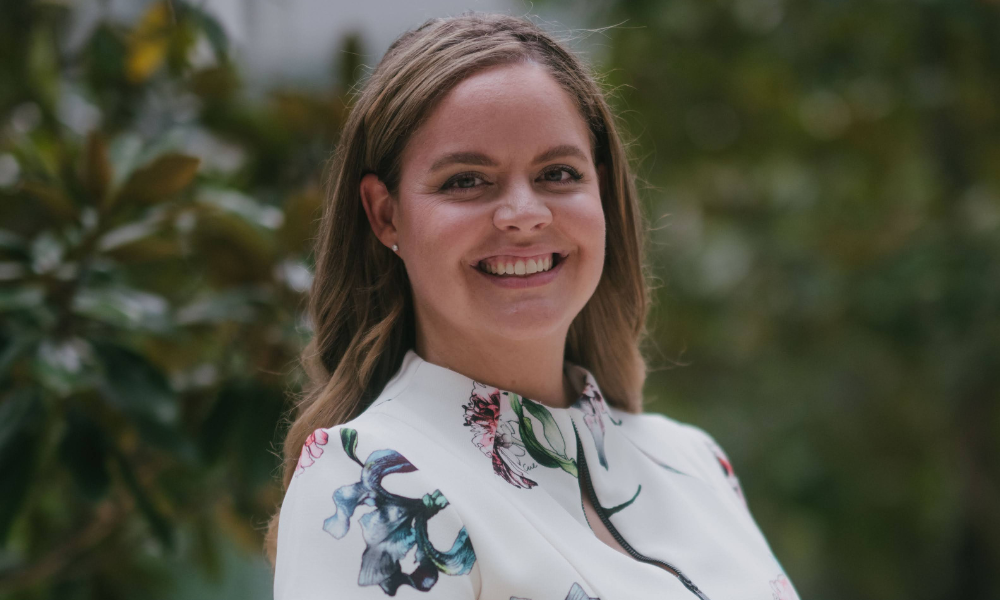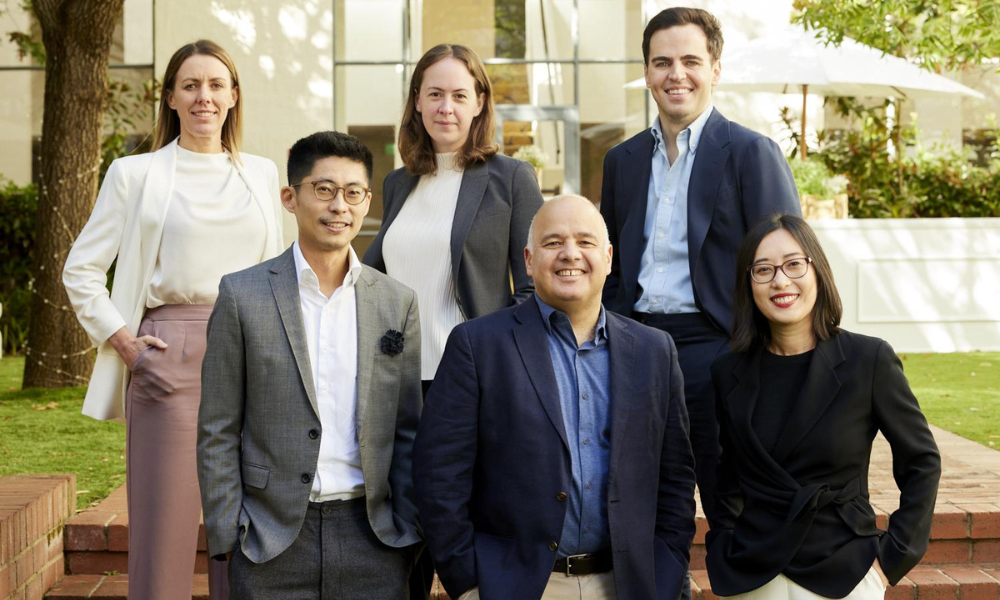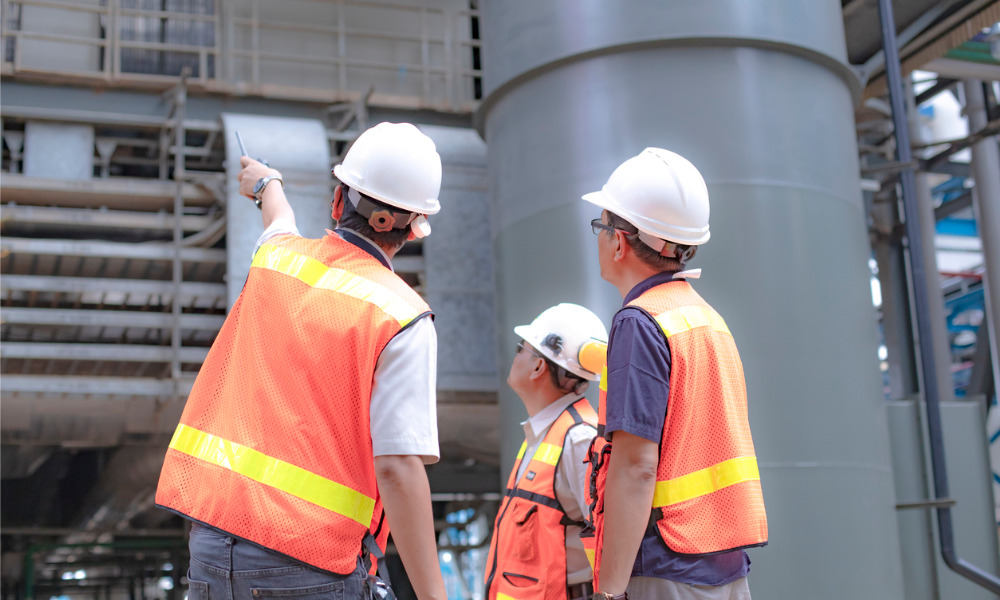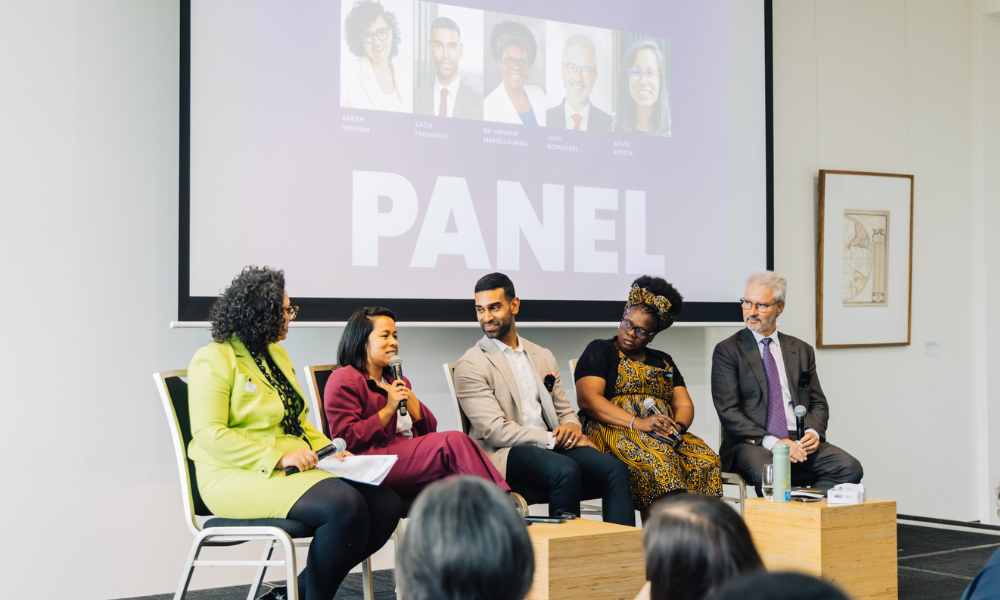Lara Freidin believes that pro bono assistance from the profession can go a long way

Gender inequality remains a challenge even in this day and age because despite commitments being made, there is a lack of financial support, says Women’s Legal Services Australia executive officer Lara Freidin.
She highlights the importance of legal advice and representation in supporting the economic wellbeing of women, as well as in enabling their deliverance from violent situations. To this end, not only is government funding critical, so is pro bono support from private practitioners.
In this interview, Freidin discusses the most common issues encountered by Women’s Legal Services Australia, coordinating a national legal body, and what she wants to see the family law system addressing.
Can you give us some background on your work with Women’s Legal Services Australia? How did you get started with the organisation, and what keeps you there?
I have always been passionate about the power of the collective and working with others to achieve social change. I am also driven by feminist principles and improving responses to violence against women through reforms to policy, legislation, and systems. Working with Women’s Legal Services seems like a natural fit.
My work as executive officer of Women’s Legal Services Australia – coordinating a national peak body – means I get to work with the 13 Women’s Legal Services in each state and territory. Women’s Legal Services Australia provides a collective, national voice that shares the expertise and the experiences of Women’s Legal Service clients with key decision-makers. Our work informs the development of national policy, law reform and systemic change that impacts Australian women, particularly victim-survivors of domestic, family, and sexual violence.
Every day I feel privileged to work alongside women across the country who are committed to providing vital legal assistance and supports for women who need help that is trauma-informed, gender-led and tailored to their specific needs. It keeps me engaged to know we are increasing understanding about the value of Women’s Legal Services, and together we are creating better outcomes for women and children.
In your opinion, what makes gender equality such a hard goal to reach even in this day and age, despite all the awareness and knowledge out there?
In recent years, we have seen the Commonwealth government and state and territory governments across Australia make commitments to achieve gender equality and take action to end violence against women and children. Unfortunately, despite these commitments we have not seen a commensurate increase in funding for Women’s Legal Services, frontline specialist domestic, family, and sexual violence services, or the legal assistance sector more broadly.
We know access to legal advice and representation can support women’s economic wellbeing, enable women to escape and recover from violence, and empower women to overcome systemic barriers to gender equality. Increased funding for Women’s Legal Services should be recognised as a key part of the governments’ efforts to address gender inequality.
Women’s advocacy organisations like Women’s Legal Services Australia also need more resources to be able to provide a national voice for the law reform, policy and systemic change that is needed to achieve gender equality.
What were the most common issues Women’s Legal Services encountered over past year from the women who seek out the organisation?
The women who engage with Women’s Legal Services often experience multiple and complex issues across a range of different areas of law. All 13 Women’s Legal Services assist with family law, domestic and family violence, child protection, and victims of crime compensation. Many Women’s Legal Services also assist with migration law for women on temporary visas, employment, discrimination or sexual harassment law, and criminal law for victim-survivors of sexual assault. Women’s Legal Services provide cross-jurisdictional legal assistance which is integrated with social supports, such as social work and financial counselling, to ensure we can provide wraparound support that promotes better long-term outcomes for women.
The women we see who have experienced violence and are primary caregivers for their children are often carrying the brunt of the financial and emotional costs of separation. Their resulting economic disadvantage is a critical concern that can have long-lasting effects on their wellbeing and that of their children. We need the family law system to be better at considering the effect of family violence in property settlements and we need better responses to the non-payment of child support.
Can you share some initiatives Women’s Legal Services Australia has in place/in mind that would be greatly helped by increased funding?
We recently collected national data which found in a five-day period more than 1,000 women seeking help were unable to receive assistance from our services as a result of underfunding. Increased funding would mean Women’s Legal Services could address the significant demand for specialist legal assistance from Australian women.
Increased funding would also ensure Women’s Legal Services can provide modern workplaces and appropriate remuneration for their lawyers, social workers, financial counsellors, and other staff. As a result of underfunding, in most jurisdictions our predominately women-identifying workforce is paid significantly less than staff at legal aid commissions, government and private practice. As an example, Women’s Legal Service ACT employees have faced a 1.6% indexation of their Commonwealth funding for the 2023/24 financial year – a mid-level solicitor in the ACT would see 27% indexation over the same period. Our workers provide vital assistance to women experiencing disadvantage or gendered violence in our community and deserve to be paid fairly.
We are also seeking funding to increase the resources of Women’s Legal Services Australia so we can continue to provide a national voice on policy, law reform and systemic change to achieve justice, safety and equality for women. The national peak body is currently funded by contributions from all 13 Women’s Legal Services and does not receive any direct government funding. We are regularly consulted by the Federal government, parliamentarians and other national bodies to inform the development of policies and legislation, and should be directly funded to do this work.
How in your opinion can the legal profession better support Women’s Legal Services?
The legal profession has an important role to play in advocating for the legal assistance sector and promoting the benefits of free and accessible legal services. We need increased funding for the entire legal assistance sector, as well as dedicated funding for Women’s Legal Services. This includes additional funding for Legal Aid Commissions, Community Legal Centres, Family Violence Prevention Legal Services, and Aboriginal and Torres Strait Islander Legal Services.
For example, the Law Council of Australia, as the national voice of the Australian legal profession, has called on the Commonwealth to increase funding for legal assistance services. A united approach from the legal profession about the need to increase access to justice creates further impetus for the Commonwealth government to increase funding for legal assistance services. It is the Commonwealth government’s responsibility to recognise the value of our services and to provide ongoing and consistent funding.
We also highly value the work of the private profession to provide pro bono assistance to Women’s Legal Service clients, and the partnerships we have with law firms across the country to provide support to our services. Any financial or pro bono support that can be provided to either Women’s Legal Services or the national peak body is very welcome, and will contribute to ensuring we can achieve our vision of justice, safety and equality for women.










